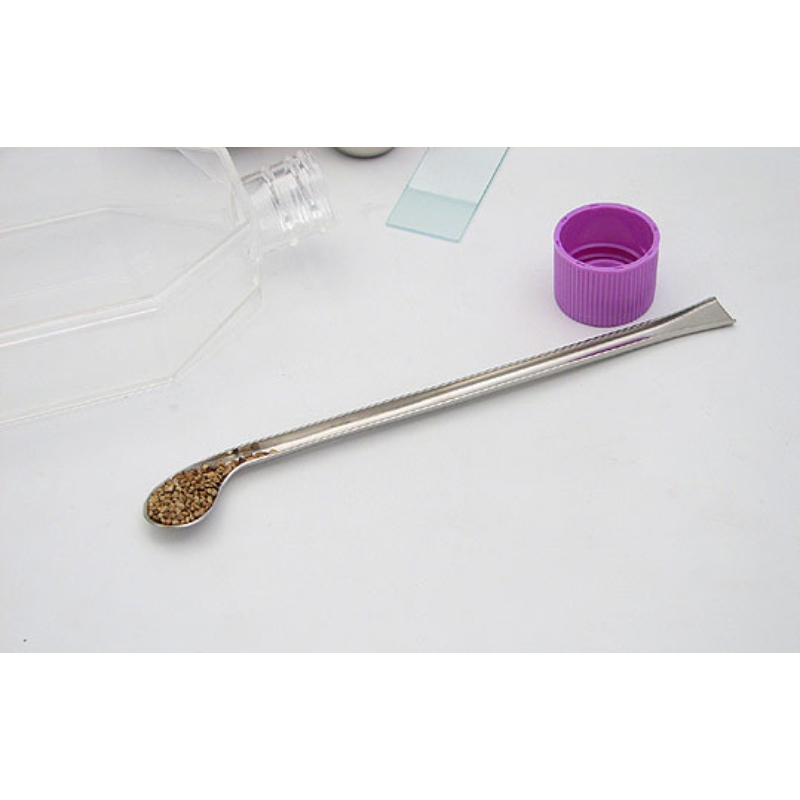Features and Benefits
- The unique shape spoon, offset, allows contact with all corners of bottles and containers, reducing sample losses.
- Can retrieve powders, granules, solids and viscous liquids.
- The alternate end can be used as a scraper or spatula

